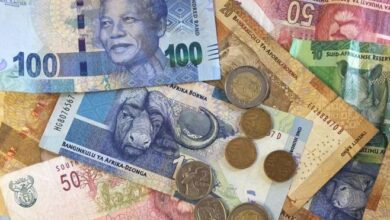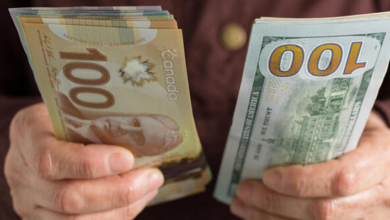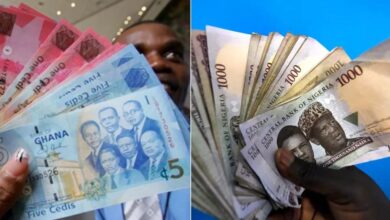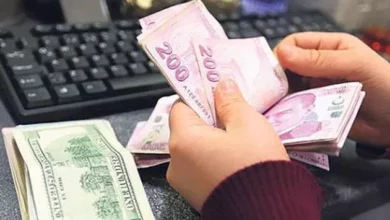Chinese Yuan To Naira Official CBN and Black Market Exchange Rate Today
What is Chinese Yuan To Naira Black Market Exchange Rate Today?
Are you interested in the current exchange rates between the Chinese Yuan and the Nigerian Naira? If yes answered, then this article is for you.
Because of the close economic ties that exist between China and Nigeria, it is essential to be familiar with the current currency rate of one yuan to one naira (1 CNY = 1 NGN).
Nobody in Nigeria would go out of their way to increase the number of Chinese goods in their environment.
To put it another way, Chinese goods are quickly becoming more commonplace in the everyday lives of the typical Nigerian.
These include things like mobile phones, television sets, generators, clothes, and a large variety of other goods. Some of their products have been rebranded to say “Made in…… (other countries)” to divert people’s attention away from the fact that they were manufactured in China.
This is done because some of their products are perceived to be of a lower quality than those manufactured in other countries.
Because of the quite lower costs of manufacturing in China, a large number of businesspeople in Nigeria are now having their goods produced there. There is almost every week that goes by when Nigerians do not go in large numbers to China for business reasons.
The Nigerian Naira
This became the official currency of Nigeria on January 1, 1973, and the Central Bank of Nigeria is the only institution authorized to issue it.
The Nigerian Naira is composed of one hundred kobo units. In recent times, inflation has been a serious concern because the current inflation rate of the Nigerian Naira is 17.1%.
Chinese Yuan To Naira Black Market Exchange Rate
Yuan to Naira Black Market Rate
Buying @ 1 Yuan = 90.00 Naira
Selling @ 1 Yuan = 97.00 Naira
Yuan to Naira Official CBN Rate
Buying @ 1 Yuan = 61.52 Naira
Selling @ 1 Yuan = 61.82 Naira
History Of The Chinese Yuan
Another name for the Yuan is Yuanshi, which refers to a collection of Chinese historical works also known as the 24 Histories of China. The Yuan is the official currency of China and is written as Yuán Sh.
The court of the Ming dynasty is credited with having given the order to have it made, which was in keeping with the political custom of the time.
Far back in the year 1370, the official Bureau of History of the Ming dynasty, working under the guidance of Song Lian between the years 1310 and 1381, was responsible for composing the text.
The compilation contributed to the establishment of the official history of the Yuan dynasty that came before. Under the direction of Song Lian, dynastic history diverged from the established Confucian tradition.
As a result, a new historical framework was established, which asserted that the influence of history was on par with the influence of great Confucian classics in determining the actual path that human affairs would take.
The Hongwu Emperor gave the order to compile the Yuan History for the first time in the second year of his reign, which was 1369.
Using resources such as the historical court records of the Yuan dynasty, which were kept at Khanbaliq and Xu Da was able to seize, he was able to piece together this information.
Within some months, the initial draft of the history book was written by a full team of sixteen people. The team was led by Song Lian and chancellor Li Shanchang, who oversaw scholars Wang Yi (1321-1372), Zhao Xun, and others.
However, because there were not enough court documents for the final years of the Yuan, the compilation had to be postponed while further historical data was collected in the meanwhile.
In the year 1370, following a second commission and the addition of fresh materials, the Yuan History was finally finished.
Only 331 days were needed to write the two hundred and ten (210 total) chapters that make up the history.
The people who compiled the Yuan History did not provide any comments or evaluation of the people whose biographies were included in the book, which distinguishes it from the official histories.
Chinese Yuan To Naira Frequently Asked Questions
Why is the Chinese yuan trading at such a low rate?
Although a portion of the downturn can be attributed to the Federal Reserve’s aggressive tightening to reign in inflation, the gloomy economic outlook in China is also a significant factor.
Will the value of the yuan go up?
According to the predictions of Trading Economics’ global macro models and the forecasts of analysts, the value of the Chinese Yuan is anticipated to trade at 7.10 after this quarter.
It is anticipated to trade at 7.36 in a year. The exchange rate for US dollars to New York dollars is just for reference and is not used in currency trade.
Is it a good time to invest in China right now?
China continues to have huge market development potential, possesses a skilled labour pool and infrastructure that is unmatched, and is investing in its skills to serve as a manufacturing base for industries of the future.
Although there are times when investing in China is difficult, there is no other country that can take its place.
What would happen if the money of China became the standard worldwide?
If the yuan is used as the unit of exchange, China will be able to reduce the risks associated with fluctuations in the exchange rate and become less dependent on foreign institutions and international payment systems. This will make it possible for China to engage in more secure international financial transactions.
Is It Possible for the Yuan to Replace the Dollar?
According to the findings of the experts, finding a suitable alternative to the dollar won’t be simple or fast. On the other hand, they discovered proof that yuan reserves were consistently growing in nations that had closer trading links with China. In a world that is “multipolar,” the yuan’s rising importance might make it a viable alternative to the U.S. dollar as a currency.
Conclusion
Black market exchange rates are currency conversions that are not based on the officially supplied exchange rate that has been established by the government.
The unit of currency used in China is known as the yuan. During the time that the People’s Republic of China was in existence, China used several different currencies, the majority of which were denominated in the “yuan” unit.
The People’s Bank of China introduced a single currency in 1948; it was called the Renminbi, which translates to ‘people’s currency.’ The word yuan can be translated from Chinese as either “round thing” or “round coin.”



